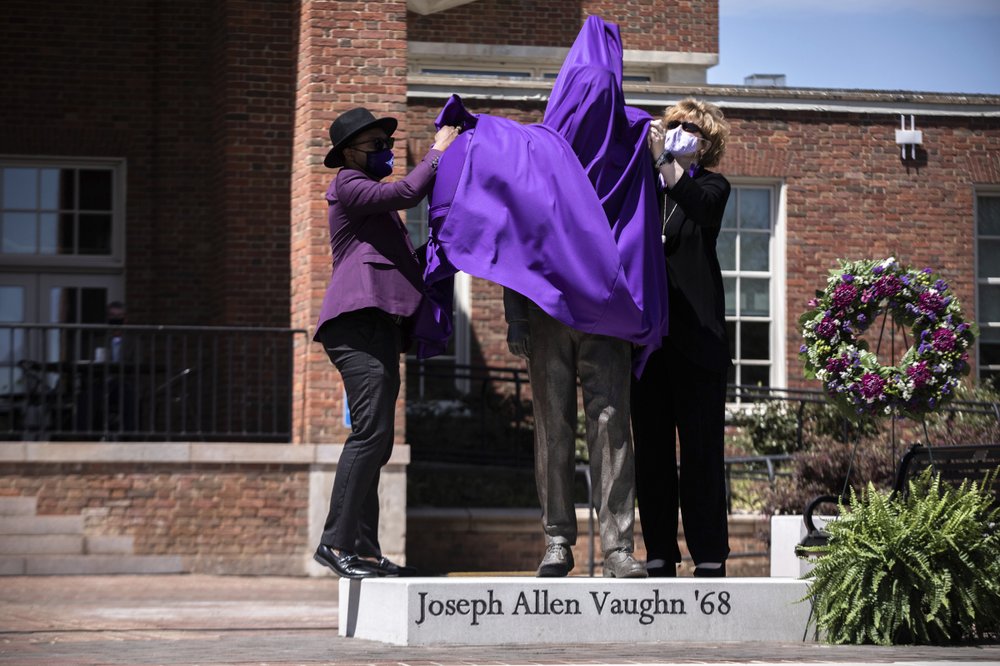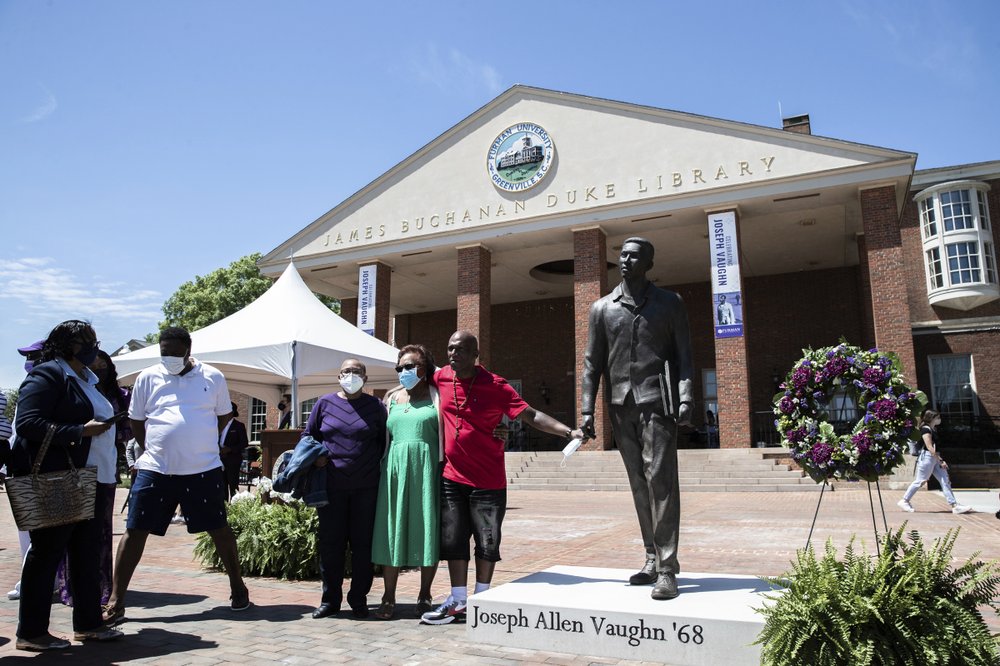Furman University unveils statue of its first Black student
The bronze statue was modeled after a photograph of Joseph Vaughn walking on campus after he enrolled 56 years ago
Furman University has forever memorialized an image captured in 1965 of its first Black student, Joseph Vaughn.
A bronze statue, unveiled Friday, was modeled after a photograph of Vaughn walking up to the campus’ James B. Duke Library shortly after he enrolled 56 years ago. The statue is installed in a plaza bearing his name with a slight change, The Greenville News reported. Instead of facing the library as he does in the photo, Vaughn’s statue faces outward.
“We very purposely placed it here in the center of campus — the most prominent and heavily trafficked part of Furman,” university President Elizabeth Davis said shortly before the statue’s unveiling Friday. “It’s facing outward, welcoming everyone just as Joe would have done.”

A group of people gathered to watch the unveiling and honor Vaughn, who died in 1991.
Vaughn, who served as president of the Greenville and Southeast NAACP student chapters, graduated cum laude in 1968 before becoming a teacher in Greenville County. He served as the president of both the Greenville County Association of Teachers and the South Carolina Education Association.
READ MORE: Georgia to erect John Lewis statue in place of Confederate monument
“Today is a testament that, while no longer here, Joseph’s work of equality and inspiring others to reach their full potential continues now and for the years to come,” Marcus Tate, a cousin of Vaughn’s, told the crowd. “My family and I are deeply touched by everybody instrumental in making today possible.”
Qwameek Bethea, a senior and president of Furman’s NAACP chapter, lauded the university for creating the statue and urged students to continue pressing for diversity and inclusion.
“While correcting the wrongs of the past, we cannot forget those made in the present,” Bethea said. “Had the students of the past not pushed for the admission of the first African American student to our institution, where would we be today?”

Vaughn was not welcomed by all on campus when he became a student, said Furman Board of Trustees chairman Ed Good, who was a sophomore at Furman at the time. Good said Vaughn found a noose hanging from his doorknob one morning shortly after he arrived.
“This statue is a rebuke of old notions and a promise that we will not return,” Goode said. “It is a symbol that Furman, now and forever, values diversity and inclusion.”
READ MORE: ‘White Lies Matter’ group threatens to turn stolen Confederate statue into toilet if demands not met
The statue, which had been two years in the making, is part of a larger movement the university started in 2017 with the creation of its Task Force on Slavery and Justice. The task force was spurred by an op-ed a Furman student wrote in 2016 in the student newspaper questioning the university’s legacy. A statue of Vaughn on campus was one of more than a dozen recommendations the group proposed to “begin to reckon with the past, repair the harms, and create increasing justice in each generation.”
In 2018, the university expanded its Joseph Vaughn scholarship for students and in 2020, the university renamed one of its dormitories after Clark Murphy, who was a Black groundskeeper of the university’s former Women’s College.
Vaughn is the first person of color whose likeness is featured prominently on Furman’s campus.
Clinton Washington III, a junior at Furman, said Vaughn’s statue is important not just because of his accomplishments but because of what it represents to minority students on campus.
“I’m grateful to be able to experience this, and it’s also just a reminder that we have to keep pushing and to never stop pushing for change,” Washington said. “Because it’s obvious we can make things happen when we speak our voices.”
Have you subscribed to theGrio’s podcast “Dear Culture”? Download our newest episodes now!
TheGrio is now on Apple TV, Amazon Fire, and Roku. Download theGrio today!
More About:Black History Month News Education









